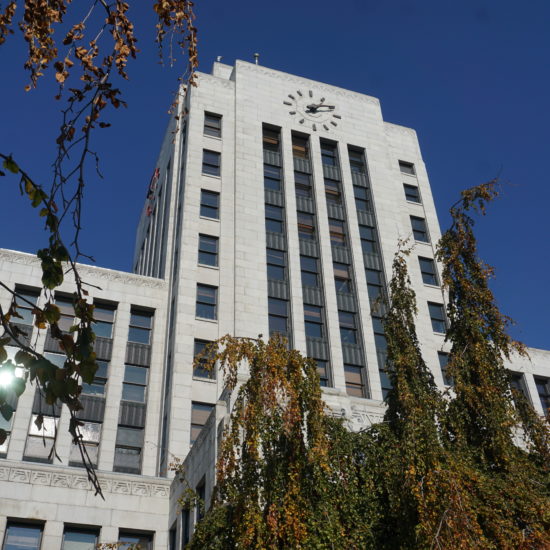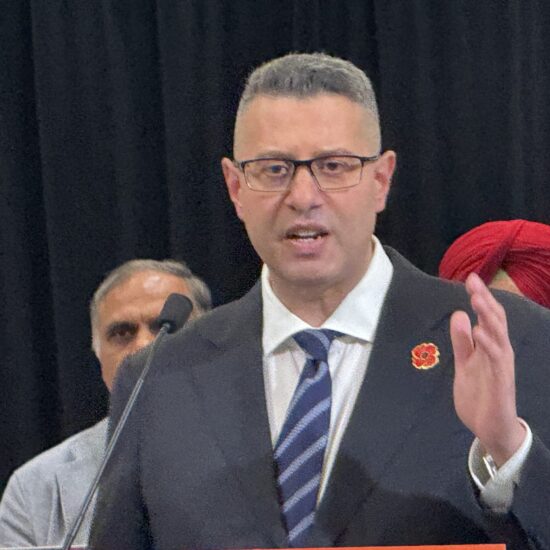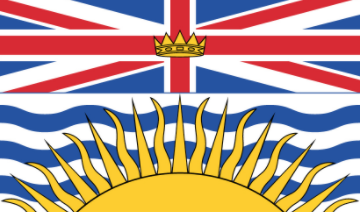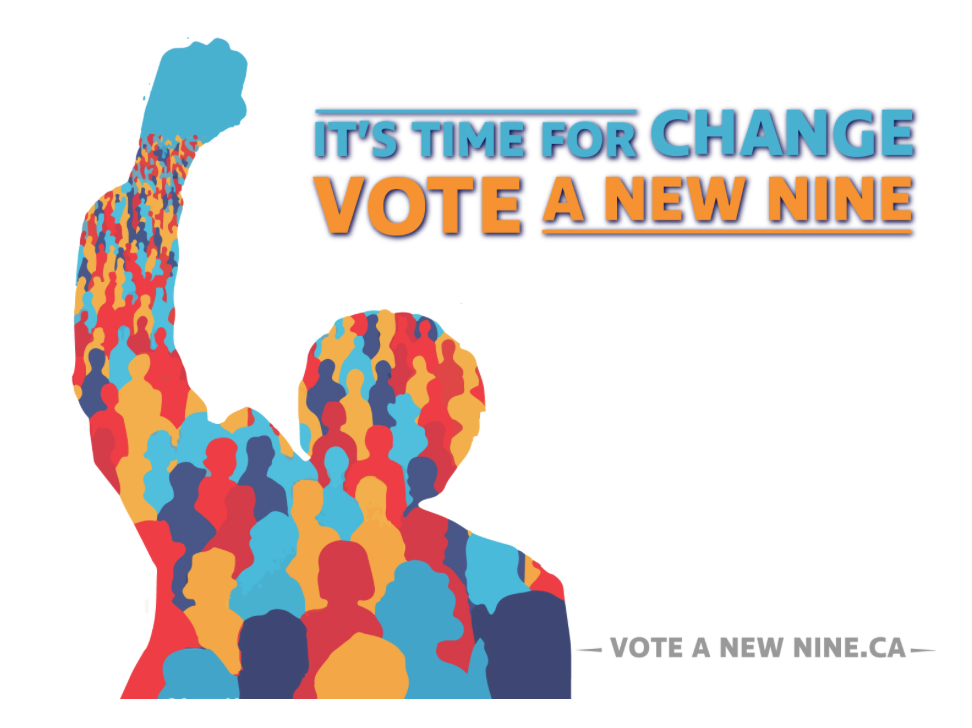
Bob Mackin
A slate of candidates running for Squamish Nation council in the Dec. 10 election is campaigning for change.
The candidates and their supporters are also changing the way campaigns are run for the North Vancouver-headquartered First Nation.
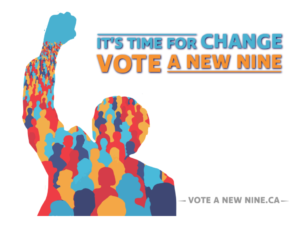
Logo for a social media campaign endorsing a slate of candidates in the Dec. 10 Squamish Nation election.
After input from 300 members, the “A New Nine for Squamish Nation Council” Facebook campaign endorsed nine candidates vying for the 16 seats on council. Fifty-nine people, including 13 incumbents, are on the council ballot. Seven others are in the running for band manager.
Knocking on doors and phoning aren’t new. But text messaging and social media — even a website on the popular political campaign platform, NationBuilder — are being employed in an effort to promote the youthful slate’s aim to gain majority control for the next four years.
“There has been quite a disconnect between Squamish council and membership,” said A New Nine co-ordinator Michelle Nahanee, who runs a graphic design and communications consultancy. “We’re finding ways to communicate with each other instead of waiting for the official communications loop.
“The younger voters are the majority now, so across the board, indigenous populations in Canada, we’ve got the fastest growing number.”
The nine endorsed are: DJ Orene Askew; construction worker Brandon Darbyshire-Joseph; Capilano University student Taylor George-Hollis; teacher Deanna Lewis; payroll coordinator Jacob Lewis III; graphic designer, linguistics student and teacher of Squamish language Dustin Rivers; office manager Kristen Rivers; student/culture and language worker Joyce Williams; and real estate agent Marcus Wooden.
The slate is pressing for more housing supply, pay equity for Squamish Nation employees, equality for off-reserve members, increased monthly allowance for post-secondary students, online streaming of council meetings and publication of motions and minutes, and opposition to Woodfibre LNG.
In 2013, 1,316 of the 2,730 eligible voters cast ballots for council candidates. Nobody won a majority. The 16 successful candidates tallied between 337 and 684 votes.
Nahanee said there is room for even more modernization in the Squamish Nation electoral process, including online voting. Some members are disenfranchised because they are not able to travel to B.C. to vote.
“We’ve got members in the U.S., we’ve got members across Canada,” she said. “Not moving to online voting is something that angers a lot of people, the members are not getting represented who can’t make it to vote.”
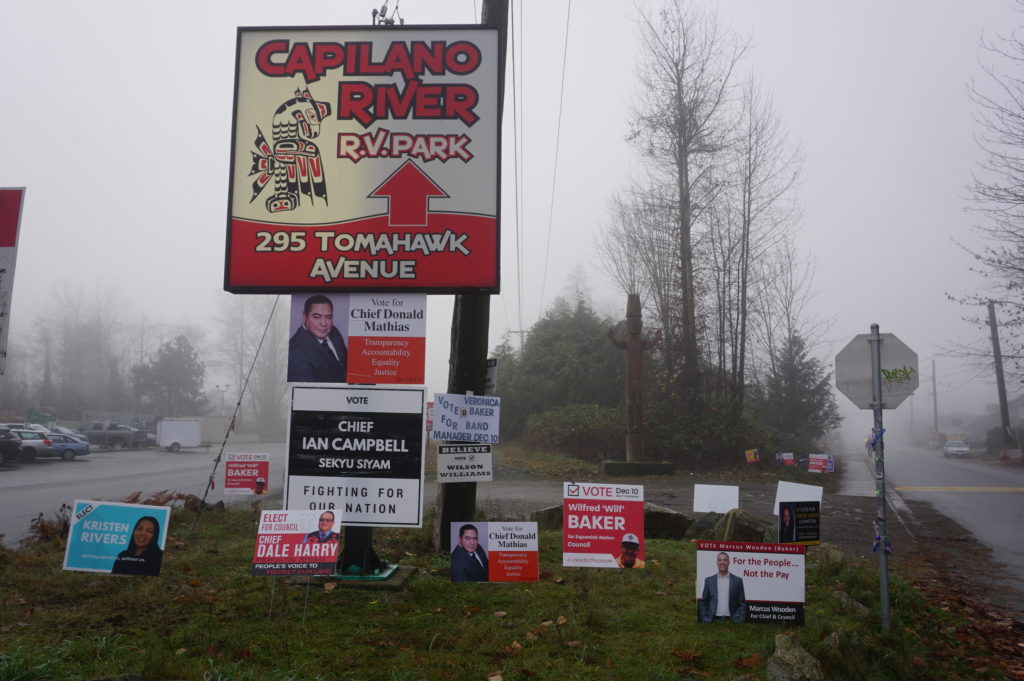
Candidate signs near the Squamish Nation Capilano reserve in North Vancouver (Mackin)
Chiefs and council members were paid a base $70,470 each last year. The council co-chairs were paid more than $92,000 each, including pension and benefits.
Squamish Nation is a 1923 amalgamation of 16 area tribes. In 1981, it switched from a hereditary government to a democratically elected one. Squamish Nation is the biggest First Nation in Metro Vancouver, by number of reserves, area of reserves and population. At the end of 2016, there were 4,214 registered members, including 2,232 living on Squamish reserves.
The Deloitte-audited financial statements for the year ended March 31, 2017 showed $87.38 million revenue and $68.06 million in expenses. Lease revenue, at $22.28 million, was the biggest source of income. Social programs cost $51.16 million.
Squamish Nation is partnered with Musqueam Indian Band and Tsleil-Waututh Nation in companies that own various parcels of former Crown land, negotiated outside the treaty process. The trio is also partnered with Aquilini Investment Group in the East Vancouver Liquor Distribution Branch warehouse land. LDB is scheduled to move in spring 2018 to Tilbury in Delta.
“We’re a very forward people and business-savvy people, but nobody should be struggling within a nation that has such huge revenue,” Nahanee said. “We shouldn’t have some people making a lot and some people making a little and having a hard time.”
Support theBreaker.news for as low as $2 a month on Patreon. Find out how. Click here.






